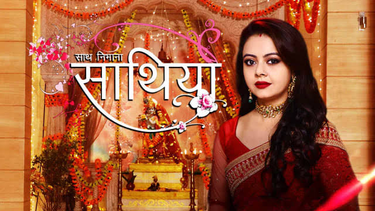Why is it that only women belong in the rasoda?
The viral song recreated from a still of the popular Indian TV program, "Saath Nibhana Saathiya" named “rasode me kaun tha ?” went viral on social media few months ago. This catchy number fashioned out a scene that has Kokilaben and her two daughters-in-law, Gopi Bahu and Rashi Bahu involved in an ardent discussion over an empty cooker(without chaanas) on a gas stove, that has led to an outburst in the house.
With the
#rasodemekauntha going trendy on electronic media for days, people started
giving their hilarious creative twist to the nationwide sensational video. This
“main thi? Tum thi? Kaun tha?” amusing song drew my attention towards the
obsolete storyline of every other Indian TV dramas, that more often than not
shows the dominance of a strict mother-in-law over her daughter-in-law and
depicts the kitchen to be the women's territory. Whether it was Rashi Bahu,
Gopi Bahu, or KokilaBen who was in the kitchen that day, why is it that only women
belong in the rasoda?
Out of many
TV productions genres, saas-bahu epics have a notable place in the Indian drama
industry. In the year 2000, when the Virani household( the famous soap opera,
'Kyunki Saas Bhi Kabhi Bahu Thi' ) received a warm welcome in the Indian homes,
it created a circumvolution, with celebrated characters such as Tulsi, Parvati,
and Kumkum bahu whom all saas wanted there to be like. Since then, these
exaggerated plays have gained remarkable responses from the Indian viewers.
These
serials have molded the interpretation of a “good female “ in our society . A good
girl always behaves accurately to everyone in the family. She is forbearing,
self-sacrificing, often naive, surrendering, and tender-hearted. She is sweet
and simple, the one who never put on a lot of embellishment. Once she gets
married off, she never ventured to go against the men in the house or the
strict mother-in-law. Her business should be how to take good care of her
folks. She needs to take care of the household, doing all the cookery and the laundry.
With the grandma or the saasu maa considering that the girl who dresses short
and is partyholic could never be classified to be a ‘good bahu’, these shows
set the benchmark for what an 'ideal' lady should be like.
Patriarchy
is apparent in Indian shows. They make us believe that a female should always
strive to be a perfect daughter, a perfect wife, a perfect daughter-in-law, and
a perfect mother so that the society doesn’t impute her parents for raising an
unsanskari girl.
Sadly enough
these melodramatic series have become synonymous with Indian TV shows. Of
course, Indian television could do with better narratives and better personas.
Why can't we show a household where both men and women go to the office and
work together in the kitchen without it being the principal core. They need to
show that no one is perfect and ideal behavior exists only in the visualized
environment. Girls should put on a bold lipstick and flowery
dresses then conquer the world by crushing the social issues and taboos under
their 6-inch heels.
Image credits:
Wikipedia and Pixabay.





Well written 💕💕
ReplyDeleteIn every show a woman is shown conspiring against other person, there's no trace of men doing the dirty work. #changesneeded.
ReplyDeleteEloquently written 📝!
Amazing Article
ReplyDeleteWell written... mentality of such persons must change their perception about their daughter in law.
ReplyDelete